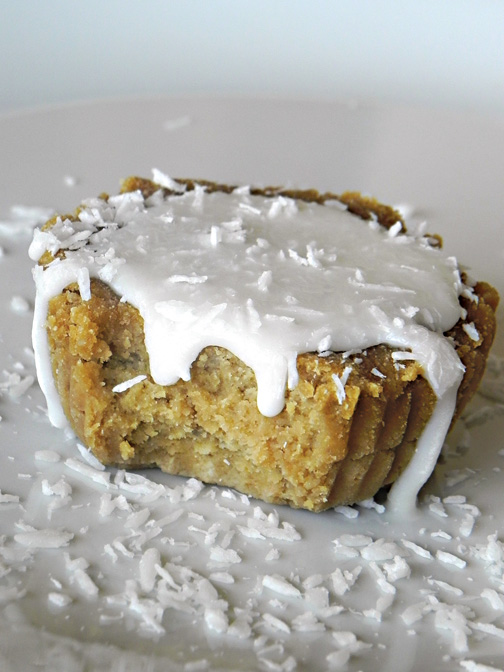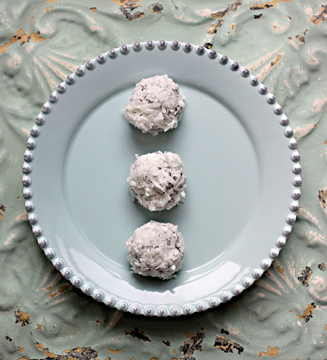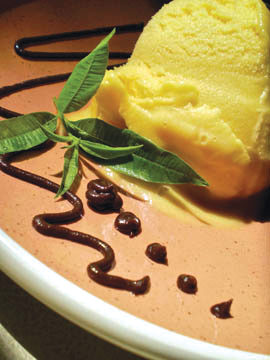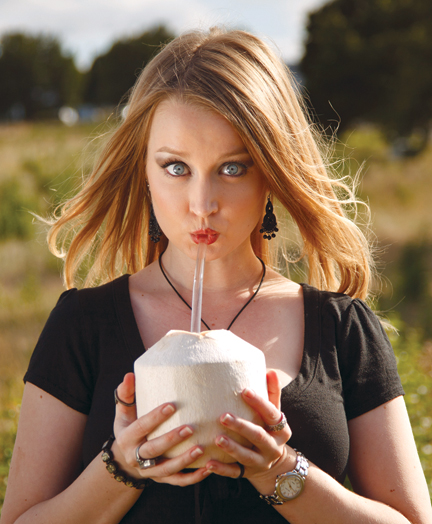 VHP author Amber Shea Crawley is here to day to tell us all about the world’s most versatile ingredient: the coconut!
VHP author Amber Shea Crawley is here to day to tell us all about the world’s most versatile ingredient: the coconut!
Not only is coconut delicious in all its myriad forms, it’s also one of the most versatile and multipurpose foods on the planet. Here are some of the wonderful products that derive from this tropical superfood:
■ Coconut oil: Rich in medium-chain triglycerides – beneficial saturated fats that convert to energy instead of body fat – coconut oil has been found to have antimicrobial and antibacterial properties and to help raise HDL (or “good cholesterol”) levels. It can also assist in weight loss and normalizing thyroid function. Coconut oil is extremely shelf-stable, and can last for a year or more without spoiling. It’s semi-solid at room temperature, but should generally be melted before using.
■ Coconut butter: First things first: coconut oil and coconut butter are two separate and very different ingredients. The oil is the pure fat that’s extracted from the coconut meat, while the butter is the coconut meat, dried and ground into a smooth paste. Storebought coconut butter can be extremely pricey, so I provide a recipe in Practically Raw Desserts for how to make your own coconut butter at home.
■ Unsweetened dried coconut: Chewy dried coconut is a culinary chameleon—it can be used to make coconut milk or butter and employed as a substitute for oats in many recipes. The “unsweetened” part is essential; don’t buy the sugar-loaded “baking coconut” from the supermarket by mistake. Also be sure not to purchase “reduced fat” dried coconut, especially if you plan to use it to make coconut butter, as it simply won’t work!
■ Coconut nectar: My #1 liquid sweetener of choice these days is the ambrosial amber syrup known as coconut nectar. Not only is it utterly scrumptious, it’s also low on the glycemic index and chock-full of amino acids, essential minerals, and B vitamins. I consider it the ideal liquid sweetener, but agave nectar is always a suitable substitute.
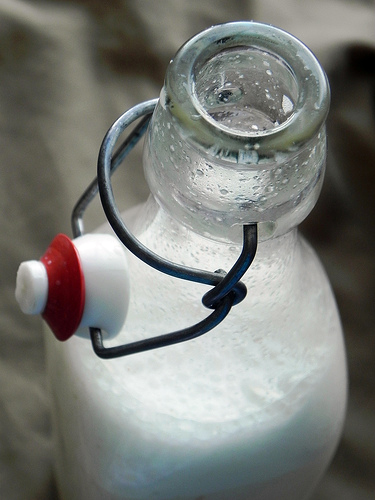 ■ Coconut palm sugar: Coconut palm sugar is my very favorite granulated sweetener, with its low glycemic index, high mineral and B-vitamin content, and marvelous flavor (like brown sugar with a caramel edge—divine!).
■ Coconut palm sugar: Coconut palm sugar is my very favorite granulated sweetener, with its low glycemic index, high mineral and B-vitamin content, and marvelous flavor (like brown sugar with a caramel edge—divine!).
■ Coconut flour: Fluffy, high-fiber coconut flour is indispensable in recipes that call for it—it cannot be replaced or substituted. Nowadays, you can commonly find it in health food stores, but you can get it especially cheap online.
■ Coconut milk: Coconut milk is one of my favorite nondairy milks, and it can either be made at home (I provide a recipe in Practically Raw Desserts) or purchased from the store in cans or refrigerated cartons.
■ Coconut yogurt: Yogurt – specifically coconut yogurt – is my favorite trick for reducing the fat content of raw desserts, and is a tasty snack in and of itself.
■ Young coconut meat: The fresh flesh from inside a young Thai coconut is an absolute delicacy, and is incredibly nutritious to boot, filled with loads of fiber and healthy fats.
■ Coconut water: The best place to get refreshing, electrolyte-rich coconut water is straight out of a young Thai coconut, but there are also decent storebought options nowadays. One sip will transport you to the tropics!
Some of our favorite recipes made with coconut are:
Coconut Heaven Cupcakes from Practically Raw Desserts by Amber Shea Crawley
Chocolate Macadamia Truffles from Nut Butter Universe by Robin Robertson
Mango Coconut Sorbet from The Blooming Platter Cookbook by Betsy Di Julio
From Practically Raw Desserts by Amber Shea Crawley. ©2013 Amber Shea Crawley. Used by permission from Vegan Heritage Press.

